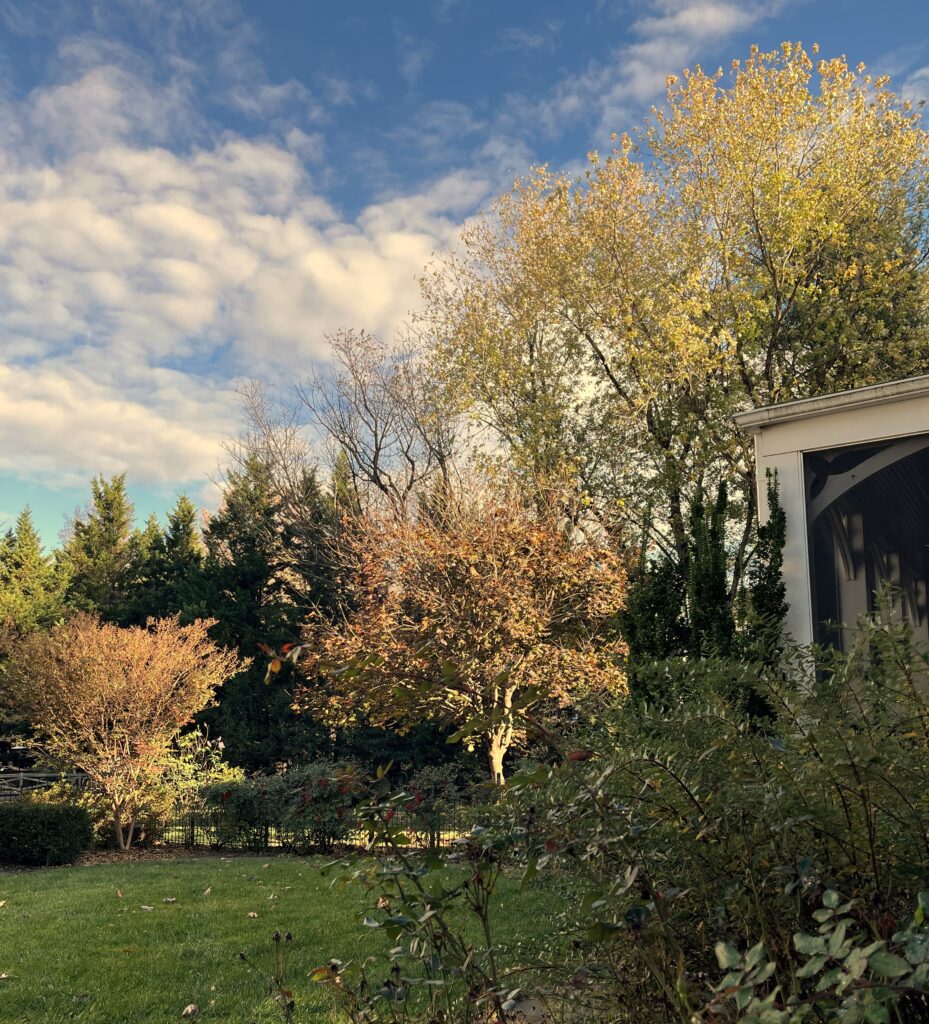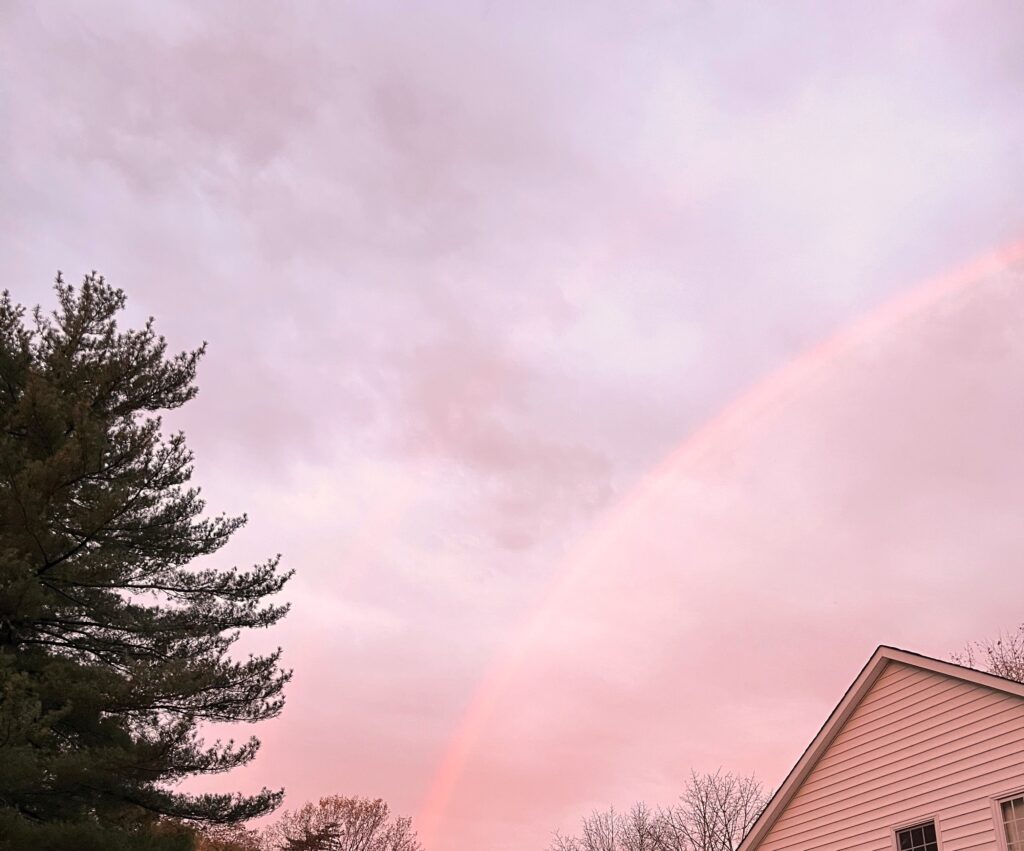I shut myself off from the election results as they trickled in on the evening of November 5. I kept away from all sources of outside information. I didn’t want to experience in real time the constant minuscule ups and downs as votes were reported. I was reading a captivating book. Its protagonist was a person who committed many terrible acts, yet managed to escape any serious consequences.
I’d been hopeful about the election, and I maintained that sense of optimism throughout the night. I know I dozed off at times, because I recalled some vivid, disturbing dreams, but I was awake most of the night, reading.
As light was breaking, around 6:30 AM, I checked my phone. My heart sank. “Trump, Again.” Really? No! No! No! Wow!
We’d been told, over and over, that it would be a very close election. I believed this. I knew that a Harris loss was very possible. And I’d prepared myself for inconclusive initial results. But I had expected so much more from my fellow citizens. Wow. Just wow. Maybe I’m still dreaming. Or maybe I’m still reading.
One of my primary reasons for optimism was the many conversations I’d had with Georgia voters during the two weeks prior to the election. I volunteered to do something I’ve never done before: to make campaign phone calls. I chose Georgia because the results were likely to be closer there than here in Virginia. I grew up in Atlanta. I have known my share of Georgians.
I never answer my phone to a number I don’t recognize; I resent such intrusions. But I felt a pressing need to do something other than donate, and I didn’t want to knock on doors. In this age of Zoom, the task is easier than ever. I sat at my computer and waited to be connected to voters. When someone answered, their first name would appear on my screen. I learned to make my case quickly and succinctly.
I made nearly two hundred calls. Judging from names and accents, Georgians are a multi-cultural bunch. This didn’t surprise me. My Atlanta high school, Henry Grady, now Midtown High, had been a melting pot since the 1950s. I couldn’t believe the number of people who willingly spoke to me. I got many hang-ups, naturally. I got a few gruff answers. One man loudly demanded to be removed from this “KaMAla bullsh*t.” But most people, even those who were not supporting the Democrats, were incredibly polite. Many peppered their answers with “Yes, ma’am,” and “No ma’am.”
I spoke to several people who weren’t planning to vote, and others who couldn’t. Two felt strongly that neither candidate took the interests of the average citizen to heart. One Latina woman had missed the registration deadline. Another told me that she couldn’t vote; she wasn’t a citizen. She spoke quickly and nervously, as if she suspected I might be the voting police. But her daughter was definitely voting for Harris, she said. One soft-spoken young man said he couldn’t vote, because he was a felon. (Interesting, isn’t it, that another felon is now the president-elect?) I talked to several White women who were all in for Trump. There were a few men who were vociferously anti-Harris, and wanted to discuss. One man, who described himself as fifty-something and Black, was convinced that Harris was an evil gang leader, who cared nothing for other Black people except to garner their votes. Despite our rather extended conversation, I never found out where he got his information. One young White man, speaking courteously, was enamored of Trump because he said “anything that was on his mind.”
But far and away, most of those I spoke with were eager and enthusiastic supporters of the Democratic party. Our conversations were like those among old friends; we were working together for what we hoped would be the best outcome for the country that we loved. I talked to many Black women who were Harris supporters for lots of reasons, but often with the well-being of their daughters and granddaughters prominently in mind. There were a number of Black men who backed Harris wholeheartedly. I talked with a White woman who had that genteel, Old Atlanta accent that has largely disappeared. She was as flabbergasted as I was that Trump was the Republican candidate, again. When one young man with a prominent South Georgia drawl answered and said he’d get his dad, for whom I was asking, I prepared myself for an earful of disagreement. Instead, his father, with just as pronounced an accent, told me that he’d been actively campaigning for Harris and felt betrayed by fellow Georgians who were supporting “that other guy.” A man of Asian descent related how his entire extended family had assembled together for early voting, for Harris. One older man started off slowly: “It’s a hard decision. Do I support the candidate who incited an insurrection and got police officers killed on January 6th? Or do I vote for the woman who is qualified to be president?” Another elderly man said he’d been a child during the 1930s, and he felt, with much regret, like we’d gone back in time.
I was reassured in discovering that the majority of Georgia voters on my call list were supporting Harris. It was, as expected, a pleasure to speak with kindred spirits. But what surprised me greatly was that I enjoyed talking even with those who thought differently from me. I never felt personally attacked. There was often humor in our exchanges. In nearly every conversation, our shared humanity was tacitly acknowledged. We were Americans who disagreed. It reminded me of past eras, when we could support different parties without questioning one another’s patriotism or hurling insults. Maybe it’s just that most Georgians are so polite?
Whatever the case, the calls left me more hopeful than I had been before. They give me hope even now. I was reminded that I feel better when I engage with others, especially with those I don’t know well. Not long ago, my daughter remarked that one of the things she had missed most during the Covid years was the opportunity to talk regularly with strangers. I agree. If we’re ever to break through the barriers of extreme polarization, we’re going to have to talk, and listen, to one another. And give each other grace. Thank you, Georgia voters, of all political persuasions, for bringing this point home to me.
Incidentally and aptly, the title of the book that held my attention all during the long night of November 5, was this: The Sequel.





